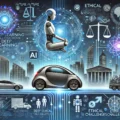Education: The Gateway to Knowledge and Growth
Imagine a world where every individual has the opportunity to unlock their full potential through education. This is not just a dream; it’s a reality that we strive for, but one that often comes with its own set of challenges and debates. What exactly is education? Is it merely the transmission of knowledge from teacher to student, or does it encompass so much more? Let’s dive into this fascinating topic.
The Many Faces of Education
Education can be seen in various forms: formal, non-formal, and informal. Formal education follows a structured framework, typically within the confines of schools or universities. Non-formal and informal education, on the other hand, occur outside these traditional settings but still play crucial roles in shaping individuals.
Formal Education
Formal education is like a well-organized journey through life’s many landscapes. It includes early childhood education, primary education, secondary education, and tertiary education. Each stage has its own unique challenges and rewards, much like climbing different peaks on a mountain.
Non-Formal and Informal Education
Non-formal and informal education are more like the winding paths that lead to the same summit. They occur outside the formal schooling system but still contribute significantly to an individual’s development. These forms of education can be as enriching as any structured program, often providing a more flexible and personalized learning experience.
Education Levels: A Journey Through Stages
The journey through different levels of education is like climbing a staircase, with each step bringing new insights and challenges. Early childhood education lays the foundation for future learning, while primary and secondary education build on this base to prepare students for higher education.
Primary Education: The Building Blocks
Primary education is where the building blocks of knowledge are laid down. It’s like planting seeds in a garden; you need to nurture them carefully so they can grow into strong, healthy plants. This stage focuses on fundamental skills and essential knowledge.
Secondary Education: The Path to Specialization
Secondary education is where students begin to specialize in their interests. It’s like choosing which path to take as you venture deeper into the forest. Lower secondary education often includes vocational training, while upper secondary education prepares students for employment or tertiary education.
The Role of Education in Society
Education serves multiple roles in society. It socializes children into their culture by instilling values and norms, stimulates economic growth through a more skilled workforce, and raises awareness about global issues. Organized institutions like governments and international organizations play significant roles in shaping education policies.
Educational Success: A Multi-Faceted Measure
The success of education is not just measured by exam scores but also by factors such as attendance rates, teacher quality, parental involvement, and post-school indicators. Psychological factors like motivation and intelligence significantly influence educational outcomes.
Evolution of Education: A Historical Journey
The history of education is a fascinating journey through time. From the practical knowledge imparted in prehistoric societies to the structured learning environments of today, each era has its own unique contributions and challenges. The invention of writing, the establishment of formal institutions like Plato’s Academy, and the advent of public education have all played pivotal roles.
Modern Developments: Technology and Globalization
Today, technology is revolutionizing education with online learning platforms and interactive tools. The rise of global initiatives to promote universal access to primary education underscores our collective commitment to this transformative force.
The Academic Field of Education Studies
The field of education studies encompasses various subfields such as pedagogy, educational research, comparative education, and the philosophy of education. It seeks to understand knowledge transmission and acquisition by examining methods and forms of education from diverse disciplines.
Conclusion: The Power of Education
In conclusion, education is not just about acquiring knowledge; it’s a transformative journey that shapes individuals and societies. By fostering critical thinking, promoting social cohesion, and driving economic growth, education plays a vital role in our collective future. As we continue to evolve, so too must our understanding of what education truly means.

You want to know more about Education?
This page is based on the article Education published in Wikipedia (retrieved on March 13, 2025) and was automatically summarized using artificial intelligence.






